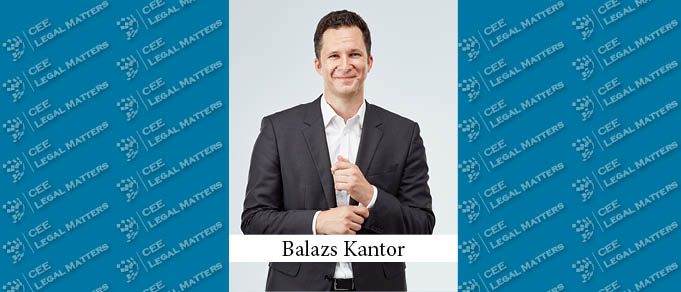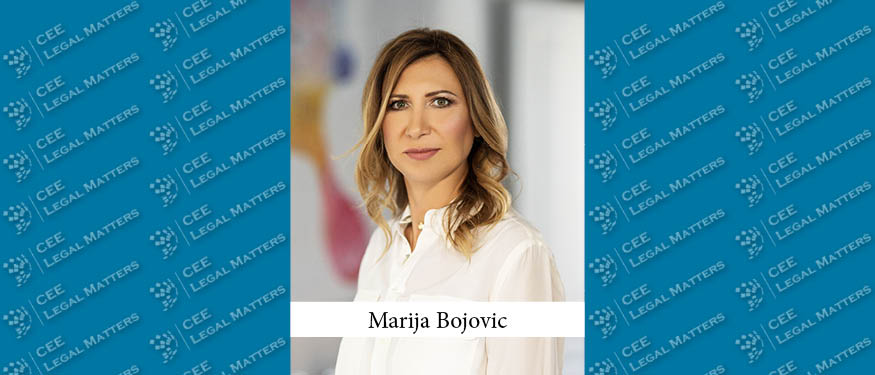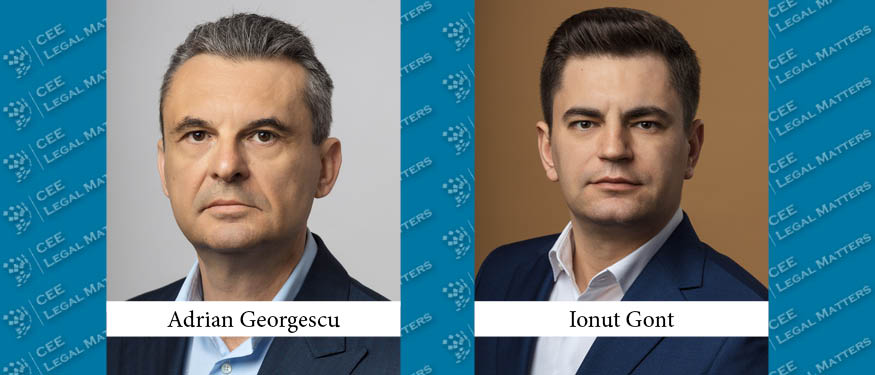Balazs Kantor, the Head of Tax at Lakatos, Koves & Partners in Budapest, discusses his career and his role in creating a leading practice in Hungary
CEELM: How did you get to your current position? Why tax law?
Balazs: In my case, the choice only seems obvious if you look backwards. When I was a university student, I did not really know what my field would be, but I knew that I wanted to be an attorney at a big law firm. So I started to work as a trainee (I was still a student the time) in the Budapest office of Allen & Overy.
In the beginning I was a generalist assisting anyone who needed my humble help, but I worked more and more with a tax lawyer who did not have a trainee then, and I soon realized that I enjoyed the work more than the other tasks – although I understood it even less (if that was possible). So I stuck with it – but I cannot say it was an entirely deliberate decision.
Soon the senior tax lawyer I mentioned joined DLA Piper, and eventually established his own practice. I followed him both times, so although I had three different workplaces in ten years, my mentor and boss remained the same in each. During these years, I was admitted to the Budapest Bar Association and obtained my tax advisor qualification.
In 2015, I received an offer from Lakatos, Koves and Partners to build a tax practice there, which I could not resist.
CEELM: Tax lawyers don’t always get the glory that transactional lawyers or litigators get. What satisfaction do you find in this area of law, and what makes you particularly good at it?
Balazs: Tax lawyers are usually associated with bad news. In a transaction, tax lawyers must limit the imagination of the parties, while tax litigation means you are fighting an underdog battle with the tax authority. The challenge is to rise above the role of doomsayer in the eyes of the clients. In the meantime, however, the options available to solve the problems you have identified are obviously limited by the law.
The satisfaction comes, therefore, when I am also able to propose a solution to the problem I pointed out or when we are able to close a tax litigation case with an outcome which is acceptable to the client. For this, it is essential that the client has realistic and carefully-managed expectations.
Tax law requires a keen eye for details and an analytic mind: you need to be able to dissect business transactions into the elements significant for the application of the tax laws. At the same time, you must be able to weave such elements into your advice, solving issues for your clients that satisfy the tax authorities. It requires imagination and creativity, in a good sense, and I hope that this is my strongest suit.
CEELM: How much of your time is spent on disputes and how much on other tax matters?
Balazs: It really varies, but tax litigation cases make up for 30-50% of our time in general. About 95% of our clients are multinational enterprises and we deal with a wide variety of tax matters in Hungary: providing information to clients about the tax environment of a planned investment or the tax consequences of a particular transaction (mostly real estate transactions and M&A transactions). The lucky ones come to us before venturing into the dangerous territory of the sometimes-byzantine Hungarian tax laws.
CEELM: Tell us about your team at LKT.
Balazs: The team includes three lawyers (including me), and we also rely on the Managing Partner of LKT, Péter Lakatos, who has a wealth of experience in litigation. It is unusual on the Hungarian market to have this tax capacity in a law firm, but as the biggest independent Hungarian law firm, it is necessary.
We are a separate practice group within the firm. The junior associates (who either have tax advisor certificates or are the process of obatining them) report to me directly. The junior associates are preparing for their bar exams now and will become tax attorneys in the first half of 2020.
CEELM: In your many years of practice, how has the Hungarian tax regime changed? Are you satisfied with it now, or are there additional improvements you would like to see in coming years?
Balazs: The biggest changes are the shift from income taxes to turnover taxes as the main source of the government’s revenue and, in parallel, the advanced use of IT technology for control. This made sense at the dawn of the financial crisis, as Hungary has always had deep traditions in tax evasion. As a result, the tax environment has become very investor-friendly – but also a bit administrative-heavy. The shift to turnover taxes obviously also had a price for the people living here – turnover taxes are mostly their burden, anyway – but in the last couple of years the tax burdens of employment have been steadily decreasing. As to the legislation, consistency can be felt now – in contrast to the frequent tax law changes of the first half of the decade – which is a good thing.
The main problem is still the uneven quality of the tax laws, which sometimes borders on the incomprehensible for the layman. I do not believe that the rules should be simple: life is complex and tax laws should reflect this. But I believe that the language of the law should be clear and accessible for those affected by it. For the same reason, when we advise our clients, we aim to be plain and simple.
CEELM: Are Hungarian courts fully competent to understand the subtleties of current tax law? Are you generally satisfied with the results of disputes in Hungary?
Balazs: This is a very delicate issue. Because Hungary does not have a special court for tax cases – only for administrative cases, where it deals with everything from laws on social security to construction laws – judges do not have the opportunity to specialize in tax cases, which I can tell you is a full job all by itself. Therefore their grasp on the nuances and subtleties of modern business life – let alone on an uncommon structure – can be limited. I really symphatize with them as it can be a very daunting task to remain on top of a tax case, and to their credit, they do not spare in their efforts.
It does not help that the procedural laws of tax litigation have changed materially in the last couple of years, as a result of which the court phase became essentially one instance, and the court has much less freedom in the choice and acceptance of evidence. As a result, a successful tax dispute must be grounded during the tax audit phase, before getting to court. It cannot be emphasized enough that the sooner you hire your tax attorney, the better your chance to win the case.
This Article was originally published in Issue 6.12 of the CEE Legal Matters Magazine. If you would like to receive a hard copy of the magazine, you can subscribe here.
















